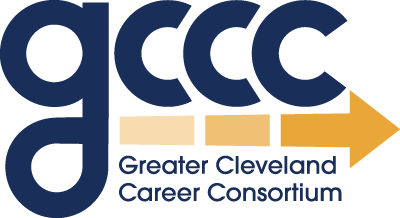
PACE: Planning and Career Exploration

The PACE Framework
PACE is the framework of the GCCC. It was developed by more than 140 cross-sector community members to serve as a guide for school systems to design and implement a sixth through twelfth-grade student experience of embedded in-class activities, out-of-school engagements, and career advising.
The GCCC, the multi-sector partner collective, works to align and sustain the PACE Framework, regionalize across school systems, and recruit and train new partners in the ecosystem. This effort is guided by a shared agenda and a shared set of metrics.
PACE creates meaningful ways for students, our future workforce, to engage with employers and community partners. And it is a new way of thinking that shifts the conversation adults have with scholars from “Will you attend college or go straight into a career?” to “What is your career goal? Here are multiple ways you can get there.”
PACE is built upon four core components and associated skills.
The four components are:
self-knowledge and self-awareness
career awareness and career exploration
active career planning and decision-making; and
work- and career-based learning.
And the associated skills include financial literacy, preparing for employability, and networking.
PACE:
acknowledges each student is different and sets all individuals up for success
provides student support and advising to explore their passions and dreams
encourages students to actively make decisions and plan a career pathway that helps them achieve their goals
calls upon the community and industry to open their doors to allow for the exploration of many occupations and career possibilities
PACE is...
Getting youth excited about potential occupational or career opportunities
Shifting the conversation from “Will you attend college or go straight to a career?” to “What is your career goal?”
Providing resources and support to each scholar so they can create their own pathway to reach their goal
Preparing the next generation of workers before they graduate
Making connections for scholars to meet with and learn from professionals
A quality framework for engaging with youth in experiences that are equitable, experiential, accessible, and connective
Facilitating experiences where everyone is prepared, accountable, and respectful
Access to a new talent pipeline
Giving back to the community


